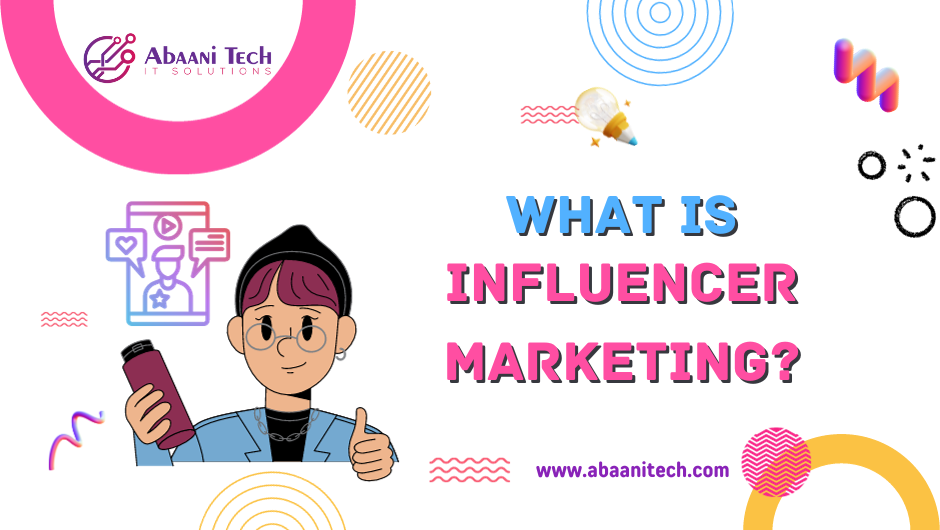The Ultimate Guide to SEO


In this comprehensive guide, we will delve into the world of Search Engine Optimization (SEO) and explore the strategies and techniques that can help your website rank higher in search engine results.
Whether you’re a seasoned digital marketer or a business owner looking to improve your online presence, this article will provide valuable insights and actionable tips to boost your SEO game.
Understanding SEO
Many people ask what SEO or search engine optimization is. So SEO stands for Search Engine Optimization and its primary goal is to improve a website’s visibility and rankings on search engine result pages (SERPs).
By targeting keywords and optimizing various aspects, websites can attract organic traffic and reach their target audience effectively.
Why is SEO important?
The importance of SEO is very much in the digital landscape. As we know that ranking higher on search engines leads to increased organic traffic, which consists of users actively seeking information, products, or services related to the website’s niche.
By highlighting this significance, readers understand the value of investing time and effort into SEO practices.
How do search engines work?
The functioning of search engines is a crucial aspect of understanding SEO. Search engines use complex algorithms to analyze websites and rank them based on factors like relevance, authority, user experience, and technical aspects.
By understanding these algorithms, website owners can tailor their strategies to align with search engine preferences.
Keyword Research
Keyword research has a very important part in SEO strategies.
Do you want to know that What is keyword research? Keyword research forms the foundation of an effective plan, as it involves identifying the terms and phrases users enter when searching for content.
By targeting relevant keywords, websites can connect with their target audience and drive valuable organic traffic.
Tools Used for Keyword Research
Various tools are available for conducting keyword research. We mention popular tools like Google Keyword Planner, Ahrefs, SEMrush, and Moz Keyword Explorer, which provide valuable insights into search volume, competition, and related keywords. This information helps readers understand how to make informed keyword choices.
Identifying High-Value Keywords
The criteria for identifying high-value keywords are the main thing. The targeting keywords with high search volume, low competition, and relevance to the website’s content can yield better results. We also recommend considering long-tail keywords, which cater to specific search queries and can be valuable for niche audiences.
On-Page SEO
On-page SEO refers to the practice of optimizing individual web pages to improve their search engine rankings and attract organic traffic. It involves optimizing various elements on the page, such as content, titles, meta descriptions, headers, and URLs, to align with relevant keywords and provide a better user experience. On-page SEO plays a crucial role in enhancing a website’s visibility and relevance to search engines.


Here we discuss some on-page SEO elements in detail:
1. Crafting Compelling Titles & Meta Descriptions
The significance of crafting engaging titles and meta descriptions is very high, as they serve as the first impression on SERPs, influencing users’ decisions to click through to the website. By optimizing titles and meta descriptions, website owners can entice users and potentially improve click-through rates.
2. Optimizing Headers & Content Structure
This is important to use proper header tags (H1, H2, H3, etc.) to improve website organization and user experience. Properly structured content makes it easier for both users and search engines to navigate the page, enhancing overall SEO.
3. Utilizing Keyword-Rich Content
The integration of target keywords into the website’s content is also very important. However, we also caution against keyword stuffing, which can negatively impact SEO. Instead, we encourage a natural and informative approach to incorporating keywords into the content.
4. Role of Multimedia in SEO
There is an important role of images, videos, and infographics in SEO. The multimedia enhances user experience and provides additional opportunities to optimize content for relevant keywords. This aspect is particularly relevant in the era of visual content and its impact on website engagement.
Technical SEO
Technical SEO refers to the optimization of the technical aspects of a website to improve its search engine rankings and performance. It involves tasks such as optimizing site speed, mobile-friendliness, XML sitemaps, and ensuring proper indexing and crawlability by search engines.
Technical SEO ensures that search engines can easily access, understand, and rank a website’s content, leading to better visibility and user experience.


Here we discuss some technical SEO elements in detail:
1. Site Speed & Performance
We shed light on the importance of site speed and performance in SEO. We explain that a fast-loading website not only improves user experience but also positively impacts search engine rankings.
By optimizing images, leveraging browser caching, and minimizing server response time, website owners can enhance site speed and reduce bounce rates.
2. Mobile-friendliness & Responsive Design
With the growing popularity of mobile devices, search engines prioritize mobile-friendly sites in their rankings. We encourage website owners to implement responsive design, which ensures that their site adapts seamlessly to different screen sizes, offering an optimal experience for all users.
3. XML Sitemaps & Robots.txt
We delve into the technical aspects of SEO, explaining the roles of XML sitemaps and robots.txt files. XML sitemaps help search engines crawl and index a website efficiently, while robots.txt files provide instructions to search engine bots on which pages to crawl and index and which ones to avoid.
4. Canonical URLs & Duplicate Content
Here, we address the issue of duplicate content and its impact on SEO. We introduce the concept of canonical URLs, which helps search engines identify the preferred version of a page to index.
By using canonical tags appropriately, website owners can avoid duplicate content penalties and ensure their content is correctly indexed.
Off-Page SEO
Off-page SEO refers to the optimization activities performed outside of a website to improve its search engine rankings and authority. It involves building high-quality backlinks from reputable websites, engaging in guest blogging, and utilizing social media to enhance a website’s online presence.
Off-page SEO plays a crucial role in establishing a website’s credibility and reputation in the digital landscape.


Here we discuss some off-page SEO elements in detail:
1. Link-Building Strategies
In this section, we explore the importance of link-building in SEO. Backlinks from authoritative and relevant websites signal to search engines that a website is credible and trustworthy. By employing ethical link-building strategies, such as creating valuable content and engaging in guest blogging, website owners can improve their site’s authority and search engine rankings.
2. Guest Blogging & Outreach
Here, we elaborate on the benefits of guest blogging and outreach. Guest blogging on reputable websites not only exposes a website to new audiences but also provides valuable backlinks. We encourage readers to engage in outreach efforts, building relationships with industry influencers and bloggers to amplify their online presence.
3. Social Media & Its Impact on SEO
While social media signals do not directly influence search engine rankings, a strong social media presence can drive traffic to a website and increase brand visibility. We encourage readers to leverage social media platforms strategically to complement their SEO efforts.
Local SEO
Local SEO allows businesses to appear in local search results, attracting nearby customers actively seeking products or services. We recommend optimizing Google My Business listings and maintaining consistent NAP (Name, Address, Phone Number) information across online directories to enhance local SEO.
Here we discuss some local SEO elements further:
1. Google My Business Optimization
In this section, we provide step-by-step guidance on optimizing a Google My Business listing. We emphasize the importance of completing all relevant information, such as business hours, location, and contact details. A fully optimized listing can improve visibility in local map packs and knowledge panels.
2. NAP Consistency & Local Citations
Consistent Name, Address, and Phone Number information across online directories and platforms help search engines verify a business’s legitimacy, positively impacting local rankings. We encourage readers to audit and update their business information to maintain accuracy.
Voice Search and Featured Snippets
In this section, we discuss the growing popularity of voice search and voice assistants. With the rise of smart devices and voice-activated technologies, optimizing for voice search becomes crucial for staying relevant and capturing voice-based traffic.
Here we discuss some Voice Search elements further:
Optimizing For Voice Search
Here, we offer actionable tips for optimizing content to cater to voice search queries. We encourage website owners to use natural language and conversational tones in their content, anticipating and addressing common voice search questions to increase their chances of appearing in voice search results.
Understanding Featured Snippets
Featured snippets are selected search results that appear at the top of SERPs, providing concise answers to user queries. We guide readers on how to structure their content to increase the chances of being featured, aiming to capture more visibility and organic traffic.
Measuring SEO Success
To measure SEO success, track key performance indicators (KPIs) such as organic traffic, keyword rankings, and conversion rates. Utilize tools like Google Analytics and Google Search Console to monitor website performance and gain valuable insights. Analyze data regularly to assess the effectiveness of SEO strategies and make data-driven decisions for continuous improvement.


Here we discuss some success elements further:
1. Key Performance Indicators (KPIs)
We outline key performance indicators such as organic traffic, keyword rankings, click-through rates (CTR), and conversion rates. By monitoring these KPIs, website owners can gauge the effectiveness of their SEO efforts and identify areas for improvement.
2. Utilizing Google Analytics & Google Search Console
Here, we introduce readers to two indispensable tools for tracking and analyzing website performance: Google Analytics and Google Search Console. We explain how Google Analytics provides valuable insights into user behavior, traffic sources, and other vital data, while Google Search Console offers information on site indexing, search queries, and crawl errors.
Using these tools together empowers website owners to make data-driven decisions and optimize their websites effectively.
3. Tracking Keyword Rankings & Organic Traffic
In this section, we guide readers on how to monitor keyword rankings and organic traffic effectively. We recommend using reputable SEO tools Google Web Tools, SEMrush, and Ahrefs, etc that provide regular updates on keyword positions and traffic trends.
By keeping a close eye on these metrics, website owners can identify which keywords are performing well and identify opportunities to optimize for new ones.
Content Marketing and SEO
There is a symbiotic relationship between content marketing and SEO. We explain that high-quality and valuable content not only attracts organic traffic but also earns backlinks from other websites, thereby improving a site’s authority and search engine rankings.
Integrating content marketing into SEO strategies can help websites establish themselves as industry leaders and foster a loyal audience.
You must keep in mind these things while generating content:
1. Creating Valuable & Shareable Content
In this segment, we elaborate on the importance of creating valuable content that resonates with the target audience. We encourage website owners to identify their audience’s pain points and provide informative solutions through well-crafted articles, guides, infographics, and videos.
Shareable content not only enhances brand exposure but also increases the chances of earning backlinks from other websites, contributing to SEO success.
2. Earning Backlinks Through Content
Here, we provide tips on how to earn backlinks through content creation. We stress the significance of creating link-worthy content that other websites in the industry would naturally want to reference. By reaching out to relevant websites and sharing valuable content, website owners can increase their chances of obtaining quality backlinks, which are vital for improving search engine rankings.
SEO Trends to Watch
We explore the latest emerging trends shaping the SEO landscape. We discuss developments such as voice search, mobile-first indexing, artificial intelligence (AI) in search algorithms, and the impact of video content on rankings.
Staying updated on these trends enables website owners to adapt their strategies and stay ahead of the competition. The potential impact of evolving technologies, user behavior, and search engine algorithms on SEO practices is becoming a trend now. By looking ahead and preparing for these changes, website owners can ensure their long-term success in the dynamic world of SEO.
Conclusion
In conclusion, this ultimate guide to SEO has provided readers with a comprehensive understanding of the key elements and strategies involved in optimizing a website for search engines. From keyword research and on-page optimization to off-page tactics and the significance of content marketing, every aspect of SEO has been covered.
By implementing the insights and tips shared in this guide, website owners can work towards improving their online visibility, attracting organic traffic, and achieving higher rankings in search engine results.
FAQs (Frequently Asked Questions)
- What is the ideal keyword density for SEO?
The concept of keyword density has evolved, and search engines now prioritize content that sounds natural and valuable to users. Instead of focusing on a specific keyword density, aim to use keywords naturally in your content while providing relevant and informative material.
- Is SEO a one-time effort or an ongoing process?
SEO is an ongoing process. Search engine algorithms and user behavior change constantly, necessitating continuous efforts to adapt and optimize your website for the best results.
- How long does it take to see results from SEO?
SEO results vary depending on various factors such as website age, competition, and the strategies employed. Generally, it takes several months to see significant improvements in search engine rankings and organic traffic.
- Can I do SEO myself, or should I hire an expert?
While some basic SEO practices can be implemented by website owners, hiring an experienced SEO expert or agency can provide valuable expertise and yield better results in the long run.
- Is social media essential for SEO success?
Social media doesn’t directly impact search engine rankings, but it can indirectly influence SEO by driving traffic, increasing brand exposure, and providing opportunities for content sharing and backlink acquisition.






